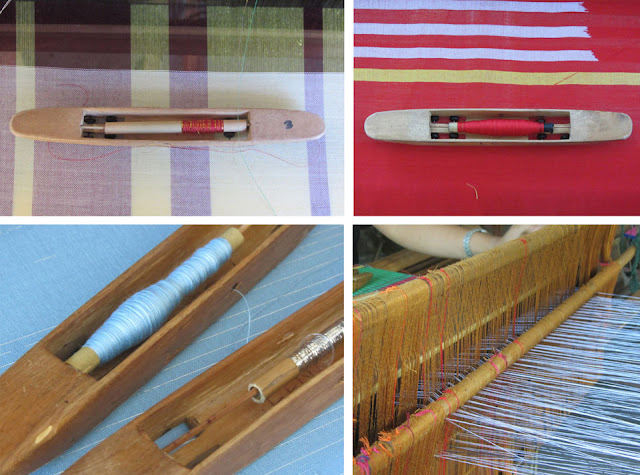How to prevent kidney disease
The cases of kidney-related diseases are rising, according to an officer of the Department of Health recently.
Dr. Maria Lourdes Hembra, medical specialist of the DOH, said every year, they have observed an increase in dialysis treatments in the region, with an increment of 100 cases a year.
“In the past five years, it has been in the top 10 causes of deaths in the region,” Hembra said.
“Patients aged 60 to 70 years old are mostly hit, followed by those aged 40-59 years old. That’s due to age and risk factors,” she said, based on what’s reported by the 22 dialysis centers in the region.
She said that most kidney diseases are asymptomatic, so the patient usually is surprised when diagnosed with such. “But it is preventable,” she said.
Dr. Ethel Cordero, during Saint Paul’s Hospital’s lecture on kidney diseases last Tuesday, shared ways how the public can take care of their kidneys.
“First is blood sugar control due to regular check-up. And if you are diabetic, regularly take your medicines,” she said, because diabetes causes kidney problems.
“Have a regular blood exam, specifically the Hemoglobin A1C test twice to four times a year. The target level has to be less than 6.5 percent,” she said.
“Second, good blood pressure control. The target blood pressure should not be more than 130/80. Consult with your doctor,” she added, again, because hypertension is a risk factor for kidney problems.
“Third, good cholesterol control. Avoid foods that are high in cholesterol because they increase your risk of having kidney problems,” she said.
Foods high in saturated fat are butter, lard and oil.
“The fat will accumulate in the body and can lead to hypertension, obesity and diabetes,” she explained.
“Fourth, lead a healthy lifestyle. Eat a balanced diet composed of five servings of vegetables and fruits a day. Eat white meat like chicken and fish because they have less toxins compared to red meat like pork and beef. Red meat can overload the kidneys,” Cordero explained.
She also advised against eating foods that are high in sodium to avoid cardiovascular diseases and coronary artery diseases. Some examples are selected foods sold at fastfood chains like Jollibee and McDonald’s, processed foods like the canned goods and even packed biscuits bought in grocery stores, and ketchup, among others.
“Read the labels of the food packages,” she advised.
“Drink plenty of water; six to eight glasses a day. Avoid softdrinks because they cause kidney stones,” she added.
She also advised people to maintain an ideal body weight. The normal body mass index is 18.5 to 25 kilograms over meter squared.
For females, the ideal waist measurement is 32 inches while for males, 35 inches.
“So, exercise at least 30 minutes a day,” she said.
“Then, don’t smoke. Smoking increases one’s risk for renal cancer. Plus, it damages the skin and causes cardiovascular disease. Also, limit your alcohol intake,” she said.
Her presentation showed that it’s okay to drink 12 ounces of beer, 5 ounces of wine or one and a half ounces of whiskey a day.
She also warned against taking many painkillers like ibufropen and mefenamic acid.
“Avoid taking herbal medicines, too,” she said, adding that her patient took herbal medicines and that person is now under dialysis.
“Herbal medicines claim they have no side effects. From there, you will know that it has no effect. Side effects are normal in drugs that work. So, please do not believe these herbal medicines’ claims,” she said.
Lastly, “engage in relaxing activities,” she said. Stress causes hypertension, making a person prone to kidney diseases./
 |
Dr. Maria Lourdes Hembra, medical specialist of the DOH, said every year, they have observed an increase in dialysis treatments in the region, with an increment of 100 cases a year.
“In the past five years, it has been in the top 10 causes of deaths in the region,” Hembra said.
“Patients aged 60 to 70 years old are mostly hit, followed by those aged 40-59 years old. That’s due to age and risk factors,” she said, based on what’s reported by the 22 dialysis centers in the region.
She said that most kidney diseases are asymptomatic, so the patient usually is surprised when diagnosed with such. “But it is preventable,” she said.
PREVENTION
Dr. Ethel Cordero, during Saint Paul’s Hospital’s lecture on kidney diseases last Tuesday, shared ways how the public can take care of their kidneys.
“First is blood sugar control due to regular check-up. And if you are diabetic, regularly take your medicines,” she said, because diabetes causes kidney problems.
“Have a regular blood exam, specifically the Hemoglobin A1C test twice to four times a year. The target level has to be less than 6.5 percent,” she said.
“Second, good blood pressure control. The target blood pressure should not be more than 130/80. Consult with your doctor,” she added, again, because hypertension is a risk factor for kidney problems.
“Third, good cholesterol control. Avoid foods that are high in cholesterol because they increase your risk of having kidney problems,” she said.
Foods high in saturated fat are butter, lard and oil.
“The fat will accumulate in the body and can lead to hypertension, obesity and diabetes,” she explained.
“Fourth, lead a healthy lifestyle. Eat a balanced diet composed of five servings of vegetables and fruits a day. Eat white meat like chicken and fish because they have less toxins compared to red meat like pork and beef. Red meat can overload the kidneys,” Cordero explained.
She also advised against eating foods that are high in sodium to avoid cardiovascular diseases and coronary artery diseases. Some examples are selected foods sold at fastfood chains like Jollibee and McDonald’s, processed foods like the canned goods and even packed biscuits bought in grocery stores, and ketchup, among others.
“Read the labels of the food packages,” she advised.
“Drink plenty of water; six to eight glasses a day. Avoid softdrinks because they cause kidney stones,” she added.
She also advised people to maintain an ideal body weight. The normal body mass index is 18.5 to 25 kilograms over meter squared.
For females, the ideal waist measurement is 32 inches while for males, 35 inches.
“So, exercise at least 30 minutes a day,” she said.
“Then, don’t smoke. Smoking increases one’s risk for renal cancer. Plus, it damages the skin and causes cardiovascular disease. Also, limit your alcohol intake,” she said.
Her presentation showed that it’s okay to drink 12 ounces of beer, 5 ounces of wine or one and a half ounces of whiskey a day.
She also warned against taking many painkillers like ibufropen and mefenamic acid.
“Avoid taking herbal medicines, too,” she said, adding that her patient took herbal medicines and that person is now under dialysis.
“Herbal medicines claim they have no side effects. From there, you will know that it has no effect. Side effects are normal in drugs that work. So, please do not believe these herbal medicines’ claims,” she said.
Lastly, “engage in relaxing activities,” she said. Stress causes hypertension, making a person prone to kidney diseases./




